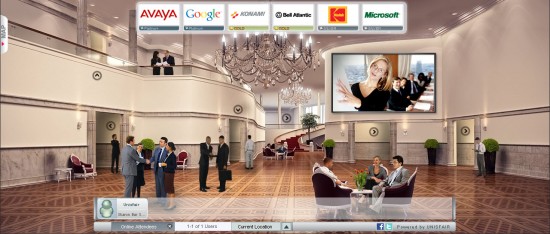The virtual event space has heated up over the last year. That’s what a recent Unisfair survey of 500 technology marketing professionals revealed: 40 percent polled considered virtual events “one of the top emerging channels for lead generation in 2010 and beyond.â€Â Companies today look for an experienced virtual platform vendor who will help them organize, build, and launch an event based on their marketing or sales objectives.
But equally important is getting your audience to the event. Just because your event is well designed, free to attend, and easy to access does not mean people will automatically register. While content is still king, you can increase the chances of getting someone to register by following three best practices during the pre-event phase.

Smooth Registration
Creating a compelling event registration site is one of the key steps to getting someone’s attention—and eventual registration. Your registration page should be clean, informative yet inviting; the look-and-feel should underscore the event theme or subject matter. Limit the amount of text, be wary of too many graphics or too much whitespace; this can lengthen the registration form and make it difficult for someone to register. Only highlight key guest speakers and topics and be mindful of formatting; too much clutter can be a distraction and even a deterrent for your event. Try also to limit the number of registration fields; find the right balance between asking your registrants to provide too much or too little information. Embedding an origin tracking code in the URL allows you to track and monitor different promotional vehicles. Remember two things: 1) the registration page is your audience’s first ‘peek’ into your event, and 2) the information captured here will be detailed in a post-event report later and is important for continued dialogue with attendees long after the event has concluded.
Email Marketing Matters
Targeted email marketing can help drive registration in many ways. Ensure your message is onpoint: describe the event, highlight key speakers andsubjects, and emphasize the value proposition (what will the audience learn or take away from attending your event?). A little color and design in your email goes a long way. But again, avoid text and graphics clutter; this also ensures your message does not get caught in many companies’ SPAM filters. Build out an email calendar up to the event date; determine the number and frequency of emails, and in some cases, to which audience. Include a (draft) agenda as part of your email; some people want to know the program in advance, so they can plan to attend the entire event or part of it. You may also include an Attendee Guide as part of your email, to allay any fears from audience members new to the virtual experience. Incentivize registration by offering free gift cards (i.e., iTunes, Starbuck’s) to early-bird registrants, or some other offer. This incentive should be prominently displayed on the registration page.
Social Media, Inside Out
Leveraging social media sites such as LinkedIn, Facebook, Twitter, and even YouTube can help elevate excitement and influence registration. Adding social media as part of your pre-event promotional strategy is not only smart, but cost-effective as most of these tools are free to use. Create an “Event Page†in your Facebook account, “Event Invitation†in LinkedIn, or tweet your event weekly up until event day (don’t forget to create a #hash tag). If your budget allows, launch a pay-per-click Facebook ad for the event. You can also create short, promotional 20-30 second video clips and post them on YouTube, eventually launching a YouTube ‘channel’ for your event.  Also activate the media tools within the platform environment; this allows event-day attendees to reach out and promote your event while it is taking place.
While a high registration rate doesn’t always guarantee high attendance, capturing registration data can go a long way to building your pipeline. Audience acquisition represents the first part of the virtual event equation: completing the registration form may signal an initial interest from the audience but how you capitalize on this interest during and after the event may determine its ultimate success.
- Storylink Radio Brings Interactive Storytelling to the Opensim World’s Fair - February 7, 2025
- Breaking news: Philip Rosedale to speak at OSCC on Sunday - December 7, 2024
- Registration now open for December’s OpenSim Community Conference - November 13, 2024
